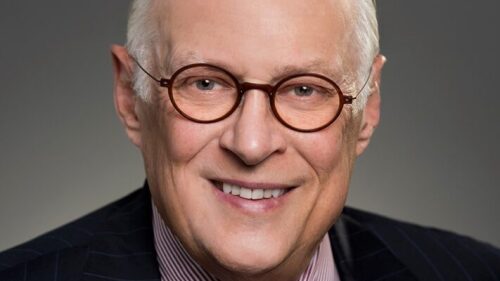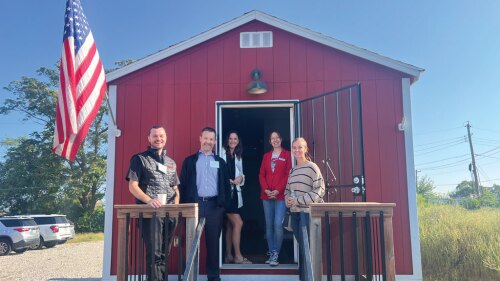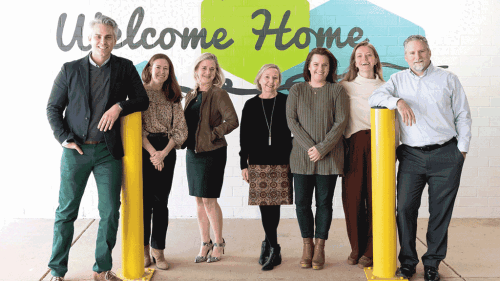Speaking at the recent ULI Europe Conference, two mayors described the paths that elected officials in their cities took in rebuilding from the economic collapse of manufacturing, while embracing diversity as a means to turn around their cities’ fortunes.
Tom Murphy, ULI senior resident fellow and a former mayor of Pittsburgh, interviewed Bart Somers, current mayor of Mechelen, Belgium. “Being a mayor is the best job in the world—you’re dealing with a different issue every 15 minutes,” said Murphy. “But it is also highly challenging, particularly for ex-industrial cities like Pittsburgh. It’s all about how you position your city, and Mechelen made the decision to embrace immigration—it wanted to be open to the world.”
For his part, Somers started by providing the audience with a snapshot of Mechelen, joking that its location effectively made him the “mayor of the center of Europe.” He continued: “What’s special about the city is that it became super-diverse in one generation. Today, 51 percent of people have a foreign background. It’s a bit of a laboratory for big cities.”
Mechelen may now be a success, but Somers described the situation when he took over as mayor back in 1999. “We had a bad situation,” he said. “Crime was high and the middle class had left. Politicians at that time didn’t have the right answers when it came to migration. In total, a third of people were voting for the extreme right.”
He continued: “For many cities, the biggest challenge is migration. But we decided to take a positive attitude towards different cultures. Now, hundreds of companies come to Mechelen and describe it as the best small town in which to invest. We are seen as dynamic, as a place where things go right. We changed the city completely and made a success of diversity.”
While huge gains had already been made throughout the 2000s and into the 2010s, Somers said that the world started to take notice when the rise of ISIS prompted an outflow of Europeans who sympathized with the organization’s cause to Syria and Iraq. “What put the city on the map was the drama about foreign fighters joining ISIS,” he said. “Belgium had the highest rate of people joining in Europe, but not a single person joined from Mechelen. Media organizations came from everywhere, even China.”
This, said Somers, prompted him to consider exactly how such success had been achieved. “We concluded that we had recruited people—we had made citizens of people—and they felt included,” he said. “I think we are stronger as a community because we took the right approach to diversity. Nobody left for Syria because we had protected our kids from extremism. The majority were born and raised here and it’s their city, too.”
That approach, Somers concluded, was also responsible for Mechelen’s changing economic fortunes. Once a center of manufacturing, the city’s employment base had been hollowed out and unemployment was high when he came to office. Today, on the other hand, the city is a hub for science and technology.
“Young families were attracted out of other cities and industry followed,” he said. “You get into a positive spiral. We now have a lot of biotech firms. That’s because we are located in the center of Europe and because of our policy on diversity. I can prove that a positive attitude to diversity can create wealth and add value.”
It may sound like the tune of a leftwing politician, but the reality is that Somers adopted a range of measures in order to make a success of his flagship policy, chief among which was a hardline stance on crime. “If people don’t feel safe, they will be angry and end up looking for alternatives to mainstream politics and blame migrants,” he said. “So, we started with zero tolerance in terms of policing.”
At the time Somers was first elected, much was being made of New York mayor Rudy Giuliani’s “broken windows” policy and he says a similar approach was adopted in Mechelen. “I was seen as a rightwing politician, although now I’m seen as a lefty,” he said. “But we made the case for it as a social policy—we never made the mistake of turning the police against any particular groups.”
In fact, Somers appeared to have little interest in rightwing or leftwing tribal instincts. “Left and right is group think, and people do it all the time,” he said. “The left views migrants as victims, while the right sees them as taking advantage. We tried to create a climate where people stopped living in the past.”
Somers also said that investing in Mechelen’s public realm was also a key ingredient to its success. “We put a lot of money into doing up the city because people associate migrants with decline,” he said. “We reduced other expenses to pay for investment in the public realm, and private-sector organizations started getting interested.”
However, Somers saved his most impassioned remarks for diversity. Key to it, he said, was understanding that everyone—no matter how long they and their families have lived in a place—have multiple identities. “People with migrant identities have multiple identities, but then again we all do,” he said.
“They know how to work with different identities, and if you approach that positively they will be creative and successful. They can be motors of social mobility. A high level of social mobility is very attractive to companies and investors.”




